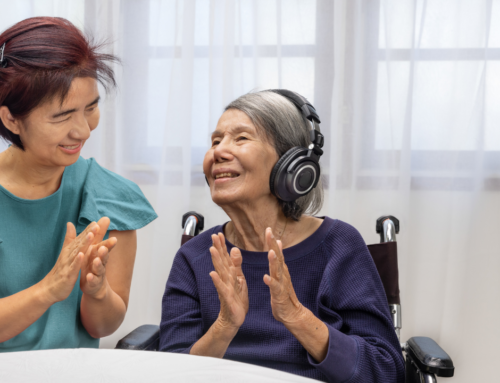Share This Story!
Coping With Change
Witnessing a loved one go through bouts of memory loss can cause concern and sadness. Memories help people build narratives and relationships. Diseases that affect memory can hurt more than the individual affected. Family and friends become caregivers and need help coping with the drastic changes, too.
What causes memory loss?
Short-term memory loss can be attributed to everything from medications to alcohol to sleep deprivation. Certain progressive diseases like dementia can gradually cause lapses in short-term memory, confusion, impaired speech, and mood changes. The signs of progressive memory loss can manifest slowly, leaving everyone involved worried and anxious.
Learn the ins and outs
The first stages of memory loss in dementia patients can be hard to recognize. Memory loss can be fleeting and can cause agitation and embarrassment in the affected person. Many people are left unsure about when to seek professional medical help. Researching the specific dementia type can prepare individuals on how to deal with a loved one’s memory loss.
Online medical resources can help people understand what to do when a person becomes aggressive or forgets a name. Recognizing denial is the first step in coping with memory loss. As people learn more about the disease, family members and loved ones can adjust expectations with time.
Provide memory-boosting tools
Photographs and objects with sentimental value can help jog a loved one’s memory. Inevitably, a loved one will sometimes forget the name of a partner or parent. Caregivers should not take this personally. Instead, loved ones should take proactive steps like planning schedules of appointments and mealtimes, labeling things like people in pictures of the family, and keeping important information on hand and by the phone.
Reach out for support
Taking care of a loved one with dementia can cause undue stress on the entire family. Individuals coping with a loved one’s memory loss should reach out to family and friends and maintain an open line of communication to ask for help when needed. Support groups and 24-hour helplines can also make people feel heard and aid in the grieving process.
Finding help
For those worried that a loved one’s memory problems are getting worse, contacting a medical professional can calm those fears. Early diagnosis can prepare a family for the daily care needed. Enlisting help from others can reduce stress and forge new connections. Finally, touring a skilled long-term care facility is a worthwhile option to consider for those who can’t provide constant care.





